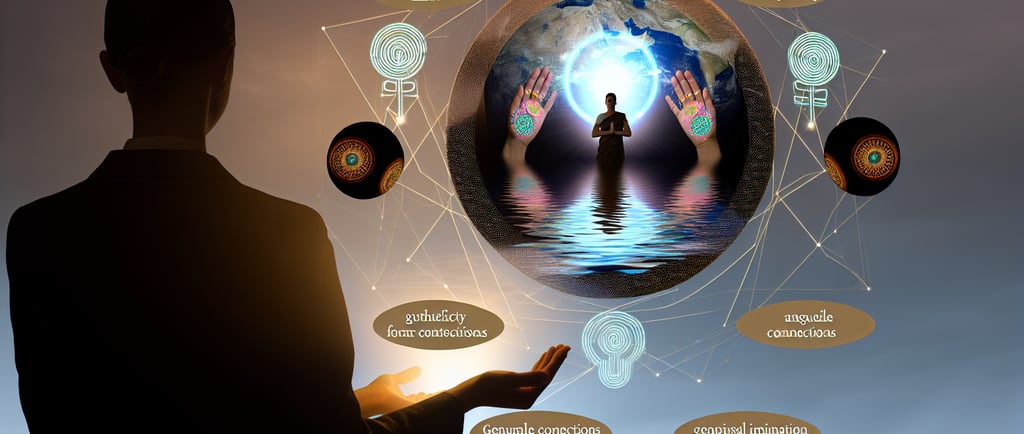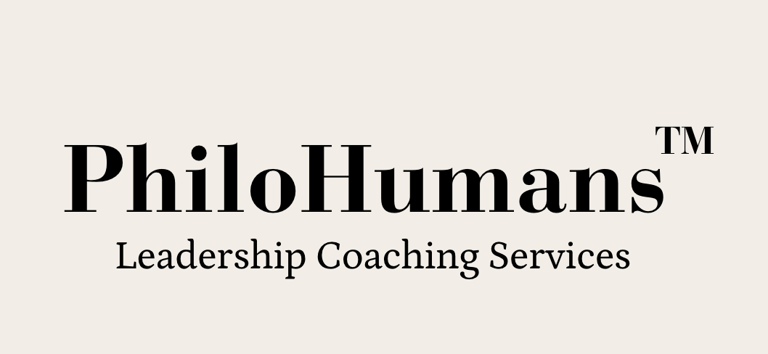Embracing Authenticity: The Core of the PhiloHuman Mindset
Explore 'Embracing Authenticity: The Core of the PhiloHuman Mindset' to uncover how genuine self-reflection and authentic relationships enhance leadership and positively impact humanity.
LEADERSHIP RELATIONSHIPS
Dr. Rojin Karickal
10/9/20243 min read


In an era where leadership models are continually evolving to meet the demands of a changing world, authenticity has emerged as a cornerstone of effective and meaningful leadership. At the heart of the PhiloHuman mindset, which emphasizes connections with oneself, one's immediate circle, and humanity at large, authenticity serves as the foundational element that enables leaders to truly engage, inspire, and transform. This article delves into the significance of authenticity within the PhiloHuman mindset and how it empowers leaders to make a lasting impact.
The Power of Authentic Leadership
Authenticity in leadership is about being true to one's values, beliefs, and personality. It involves honesty, transparency, and a commitment to leading with integrity. Authentic leaders understand that showing vulnerability and embracing their true selves can foster trust and respect among their teams and communities. In the context of the PhiloHuman mindset, authenticity goes beyond personal gain or superficial interactions; it becomes the driving force that connects individuals at a deeper and more meaningful level.
Understanding the Self
A genuine relationship with oneself is the first step to authentic leadership. Leaders must begin with introspection, asking questions like: What are my core values? What motivates and inspires me? What are my strengths and weaknesses? This self-awareness is crucial for personal growth and development. By understanding themselves, leaders can align their actions with their values, making decisions that reflect their true character rather than external pressures or expectations.
Self-reflection also means accepting one's limitations and being open to growth. Authentic leaders are not afraid to admit when they are wrong or need support. This vulnerability does not undermine their authority; rather, it builds authenticity, showing others that they are human and relatable. Self-aware leaders push past the facade of perfection and engage more honestly with those they lead.
Building Authentic Relationships
Authenticity also plays a critical role in building relationships with one's immediate circle. Empathy, a core component of the PhiloHuman mindset, is only possible when leaders are genuine and transparent in their interactions. This means actively listening to team members, showing genuine interest in their well-being, and creating an environment where open communication is encouraged.
In practice, authentic leaders seek to understand the perspectives and emotions of those around them. They are approachable and compassionate, making themselves available to offer guidance and support. By nurturing these authentic connections, leaders foster a sense of belonging and camaraderie. This, in turn, encourages creativity, collaboration, and loyalty within teams, driving collective success.
Authenticity and Wider Impact
Beyond immediate circles, authenticity in leadership extends to a leader's relationship with humanity as a whole. Leaders who embrace this broader perspective recognize the importance of contributing to the greater good and advocating for values like equality, sustainability, and social justice. These leaders ask themselves how their actions impact the broader society and use their platforms to create positive change.
Authenticity on this grand scale demands accountability and ethical decision-making. Leaders who are transparent about their intentions and actions inspire trust and support from diverse communities. They acknowledge their role in a larger ecosystem and strive to lead by example, inspiring others to adopt similar values of authenticity and integrity.
Cultivating Authenticity in Leadership
To cultivate authenticity within the PhiloHuman mindset, leaders can take several actionable steps:
Practice Self-Reflection: Regular introspection helps leaders recognize their values and assess whether their actions align with them. This ongoing process drives personal growth and congruence in leadership.
Embrace Vulnerability: Recognizing that vulnerability is a strength rather than a weakness can help leaders connect more genuinely with others. This openness encourages authenticity and trust within teams.
Foster Open Dialogue: By creating spaces where honesty is valued and employees feel safe to express themselves, leaders nurture authentic connections within their organizations.
Lead with Integrity: Making decisions based on core values and ethical considerations demonstrates a commitment to authenticity. Leaders should be transparent about their intentions and be willing to stand by their principles.
Champion Shared Humanity: Authentic leaders recognize their broader responsibility to humanity. They advocate for inclusive practices, diversity, and sustainable initiatives, aligning their leadership with the greater good.
Conclusion
Authenticity, as a critical element of the PhiloHuman mindset, transforms leadership by fostering genuine connections with the self, the immediate circle, and humanity. Leaders who embrace authenticity are not only more effective and influential, but they also inspire trust, loyalty, and positive change. As leaders navigate the complexities of the modern world, authenticity remains a timeless, powerful force that drives meaningful and impactful leadership. By embracing authenticity, leaders can profoundly impact their lives and those they lead, creating a legacy rooted in truth and integrity.


